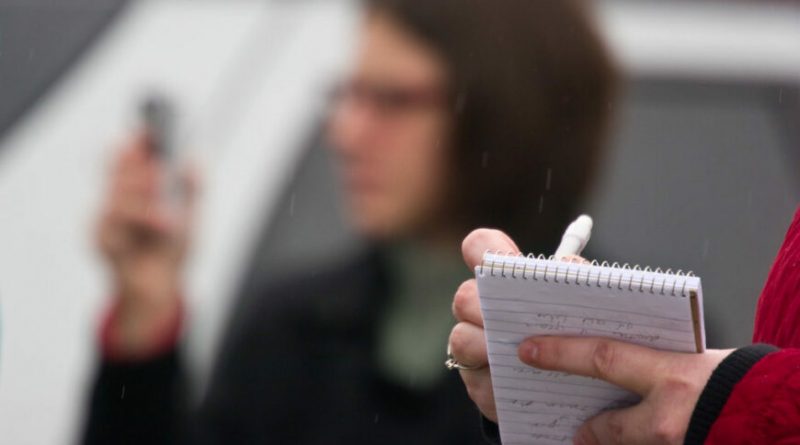Jared Olson speaks to School of Diplomacy on Journalism in Honduras
Sophia Alicea
Staff Writer
The Latin-American Diplomacy Association (LADA) of Seton Hall University’s School of Diplomacy and International Relations hosted a decorated foreign journalist, Jared Olson, on April 18 via Zoom. Olson’s journalism has been printed in various publications including Foreign Policy and Al Jazeera. Olson, who called in to the meeting from Honduras, educated students about the range of experiences he has had in his career, from life-threatening reporting to getting started in journalism.
Olson opened his conversation by discussing his experience reporting on sustainable co-ops, real cities, and hunters. He described to the audience what it was like to live with indigenous activists who were fighting to retake and build a sustainable and beautiful community for their children. In that village, he encountered a lot of hospitality and was taken in by a local man. When it was his time to leave, the locals asked him to stay and or visit again. Shortly after leaving the village, Olson learned that paramilitaries in the Aguan Valley assassinated the man who had helped him.
Olson shared the reality of how dangerous activism within journalism covering the global south can be. After his narrative about the village, Olson centered his lecture around the juxtaposition between the harmful stereotypes of political life in freedom in Latin America and the region’s beauty of indigenous communities and traditions. He argued that one of the central problems regarding media in the global south revolves around the media only covering “savage, murderous behaviors of brown people who lust for drugs, and killing each other” when, in reality, the United States has its own bloody stories as it supports death squads in and palm oil companies.
During the question-and-answer portion of the event, a student asked Olson about the freedom of speech of local journalists. Although a heavily nuanced question, Olson tackled the topic with grace and realism. He noted that local journalists do not have the capacity to do hard investigative journalism, primarily due to safety and funding issues. Although brave journalists who cover the realities seemingly put their life on the line, more extreme journalists often have funding and protection to keep them safe during their writing and after publication, which is not realistic for most local journalists or freelance writers.
Since Olson has experience as both a local and freelance journalist, he notes that the best way to protect himself and the communities he is representing is to constantly use anonymous sources, as people in the region often fear for their lives. Olson understands the perils of being a journalist in the global south, as Olson himself has experienced being watched under aggressive surveillance by Honduran military forces and has witnessed the deaths of several of his friends and colleagues.
Olson continued to answer questions covering the other dangers he has experienced as a journalist. Olson was asked how he responds to the situation of aggressors pressuring him to portray them in a positive light in his articles. He noted that sometimes conceding is the best, or safest, choice when one is facing dangers as a non protected journalist. He explained that sometimes, going through with the task at hand (i.e., publishing a story) is not worth the danger, and that stopping a project to protect the writer’s life is sometimes necessary.
Olson is just one of many journalists whose lives have been threatened doing investigative work in Latin America. While he emphasized that he loves what he does, Olson also noted that he finds much value in not sugarcoating his work to young students, as journalists consistently face life-threatening situations and media outlets often choose not to shed light on the matter.
Image courtesy of Article-19


